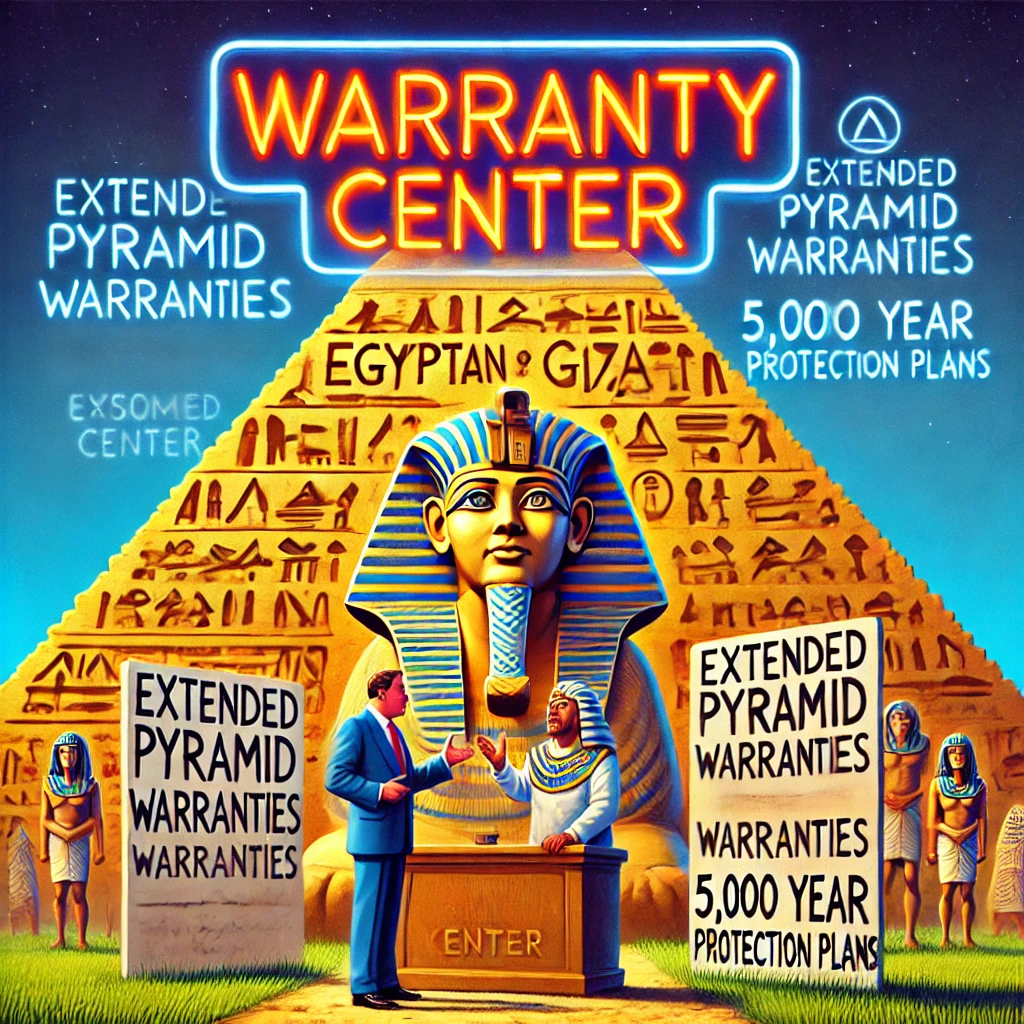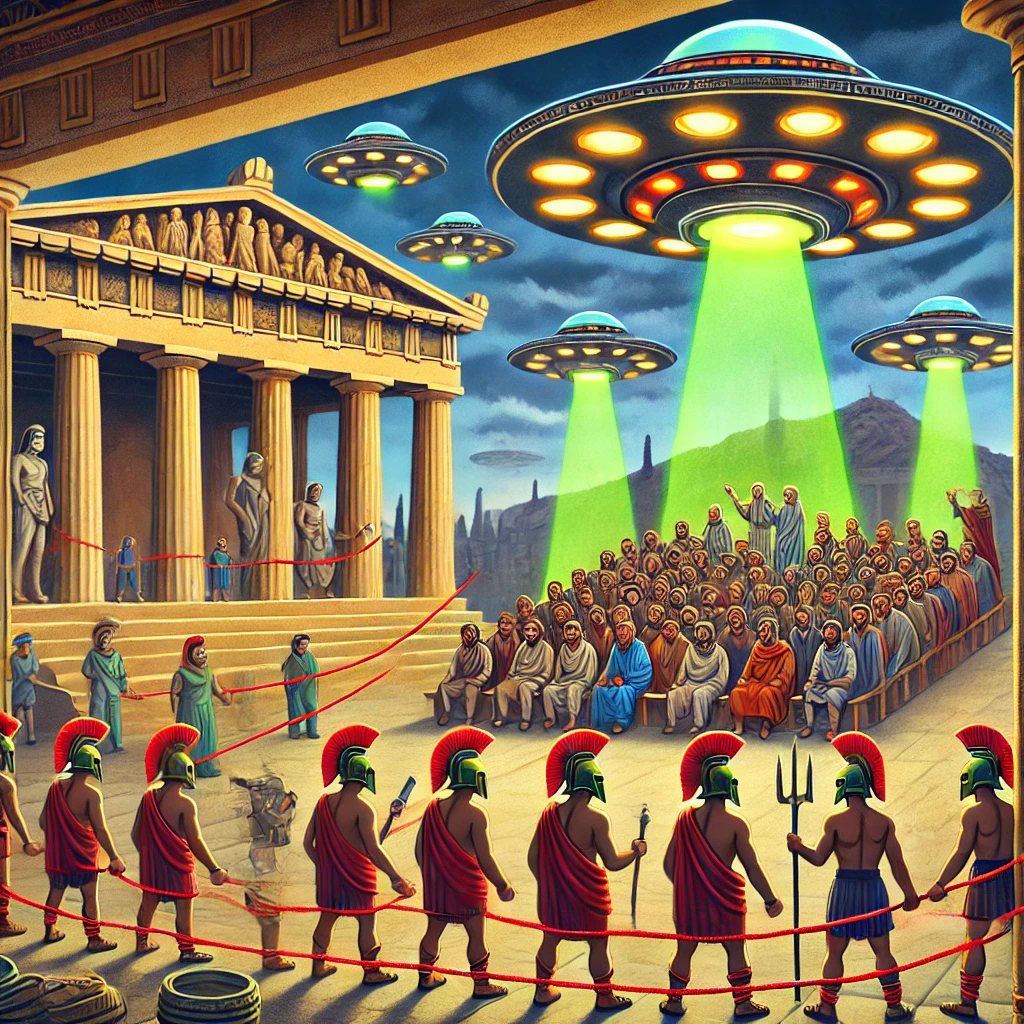In a groundbreaking shift that has archaeologists scratching their heads, evidence has emerged that ancient Egyptian architects may have pioneered the concept of extended warranties—on their pyramids.
Imagine the scene: A pharaoh, nervously inspecting the blueprints of his yet-to-be-built pyramid, is approached by a stone-faced warranty salesman. “For just 10% more limestone, we’ll cover your pyramid against wear and tear, accidental plundering, and cosmic disasters for the next 5,000 years,” he promises, holding up a papyrus scroll filled with hieroglyphs of small print.
The discovery comes from an inscription recently unearthed near the Great Pyramid of Giza. Translators believe it reads:
“We guarantee structural integrity unless the gods themselves intervene or unforeseen alien landings occur. Terms and conditions apply—consult your local scribe.”
“Extended warranties were not about protecting the pharaoh’s afterlife,” explains Dr. Alabaster Dowser, lead archaeologist. “They were about upselling. A classic case of pyramid schemes—literally.”
Historians believe the scheme worked like this: Royal architects, often under the threat of decapitation if their designs failed, realized that adding a warranty gave pharaohs peace of mind. “If a capstone slides off or a tomb gets robbed? Covered. But only if you opt into the premium warranty package,” adds Dowser.
The discovery also sheds light on ancient maintenance strategies. Archeological digs have uncovered “service contracts” with notes like, “Replace cursed trap mechanisms every 100 years or void warranty.” In one notable case, an extended warranty dispute between rival dynasties reportedly led to the first recorded legal trial over a 3-ton sarcophagus lid.
Of course, not all pharaohs were convinced. King Snefru famously opted out, leading to his pyramids collapsing. Meanwhile, Cleopatra reportedly had a lifetime warranty on her palace, though historians note this was offered under “manager’s special.”
Modern parallels are uncanny. “Extended pyramid warranties paved the way for today’s extended appliance warranties,” says consumer historian Kayla Scarab. “Except now you’re protecting your blender, not your eternal resting place.”
The true genius? Alien contractors may have been involved. One recently unearthed tablet, oddly metallic and glowing, suggests extraterrestrial influence: “Upgrade to Intergalactic Coverage to shield against asteroid impacts and galactic storms. A small deposit of gold will suffice.”
So next time you buy something, whether it’s a pyramid or a laptop, remember: somewhere out there, a pharaoh learned the hard way what happens when you don’t spring for the warranty.







